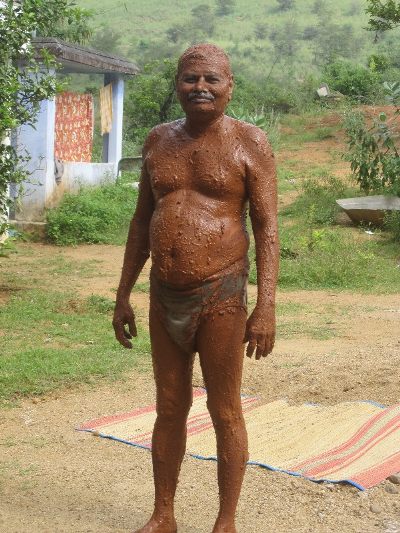Research project: The glocalization of depression
Globally circulating psychiatric concepts like “depression” are transformed and creolized when appropriated within different therapeutic contexts in local realities. This again impacts patients’ idioms, embodiment and explanations of distress. This process is closely related both to modernization or psychologization of local medical and religious practices. The aim of this medical anthropological project is to empirically explore the ways ‘depression’ is hybridized with local concepts and idioms of mental distress in ayurvedic psychiatry, naturopathy, religious healing and in pop psychology. Using ‘depression’ as an example, we address processes of hybridization and translation between psychiatric and local idioms as well as between different local idioms in a contested modernity. Further we ask how the creolization of psychiatric, psychological, physiological, social and cosmological idioms of distress fashions patients’ embodied idioms of distress. In addressing these questions, this project aims to explore the multiple and complex linkages in the social life of ‘depression’ in Kerala.
Depression is worldwide on the rise. The WHO states that depression is going to be the second most prevalent health problem by the year 2020. Whatever the cause for this rise of depression, there is a high demand for treatment, in Kerala as elsewhere. The decline of the joint family system, the competition in schools and for employment, the high rate of migration to the Gulf countries resulting in “Gulf depression” for the women back home in Kerala, the gap between a luxurious life presented in movies and TV serials and the actual economic situation, and the increasing materialistic and egoistic outlook as “western values” or the “loss of culture” are commonly described as the causative socio-economic factors for the commonly described rise of depression. From a medical anthropological perspective, the rise of depression is explained by the erosion of local idioms of distress and the increasing medicalization or psychiatrization of distress which is also promoted by the pharmaceutical industry.
The rise of diagnosed depression enhances the demand for its treatment. Although Kerala has the highest number of psychiatrists per capita compared to other states in India, there is a whole bunch of other diagnostic and therapeutic practices in the formal as well as the informal sector outside psychiatry that are important parts of the mental health care in Kerala. These are practitioners of ayurveda and naturopathy as well as astrologers, Hindu pujari and mantravadi, Christian priests and Muslim thangals. As part of coming to terms with modernization, the concept of depression which is made a global phenomenon by diagnostic catalogues like ICD-10 or DSM-IV is translated and transformed within the theorizing of many of the formal and informal therapeutic practices. Drawing from globalization theories that emphasize the transformative power of indigenous appropriation and differentiation, it empirically examines the multiple ways of how ‘depression’, is negotiated and appropriated within different therapeutical institutions within the formal as well as the informal sector of mental health care of Kerala. Further, it explores the consequences of the multiple linkages of medicalized or psychologized and indigenous notions of ‘depression’ for patients’ embodiment and explanations.
The present focus is on the appropriation of ‘depression’ and on translation processes within ayurvedic psychiatry and naturopathy in government as well as in private and in clinical as well as in academic and on their interaction with ritual or folk healing in Kerala. Both ayurveda and naturopathy are ‘Indian systems of medicine’ as acknowledged and promoted by the AYUSH department of the Indian government. Both can be found in institutionalized as well as informal way. Both kinds of practitioners are either (most of them) formally trained in colleges with the respective degrees or are trained in traditional parampara or other informal ways, and practice either with or without official license.
The project is funded by the German Research Foundation (DFG HE 2034/18-1) since 2009.
Project leader: Prof. Dr. Frank Heidemann
Research fellows: Dr. Claudia Lang, Eva Jansen M.A.


